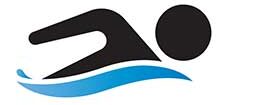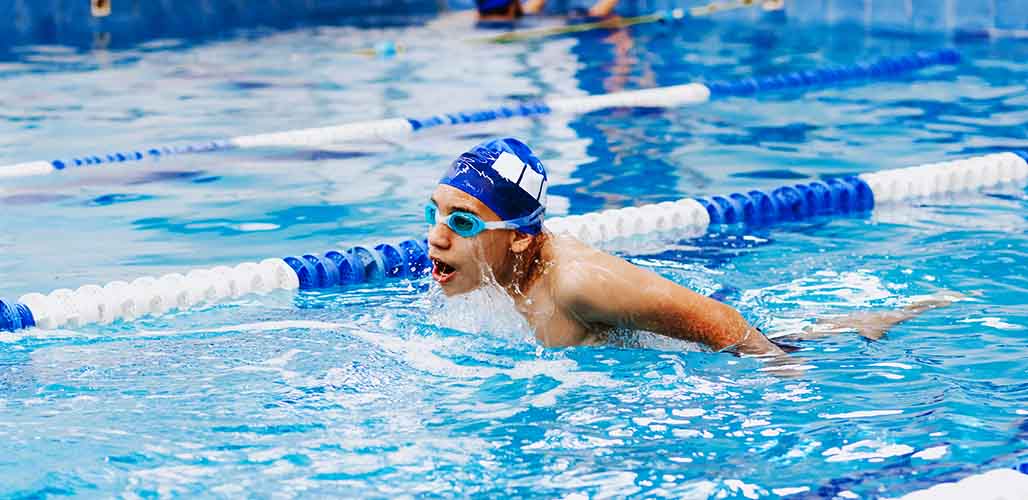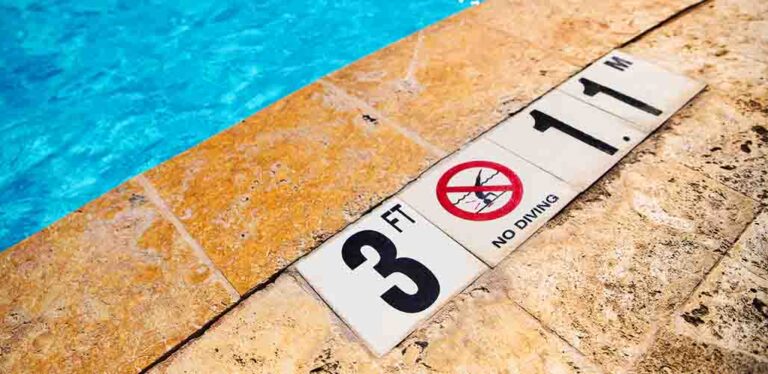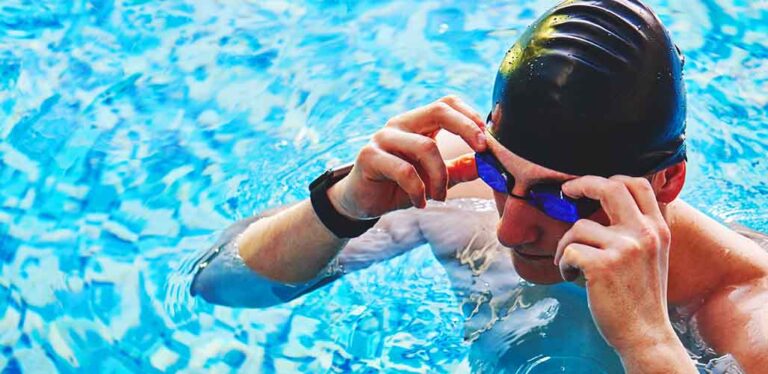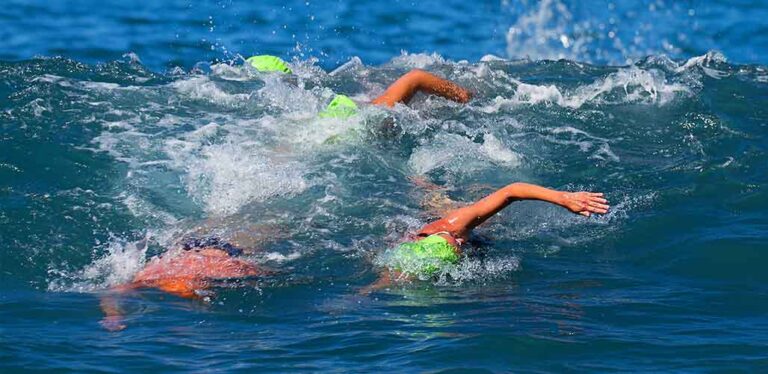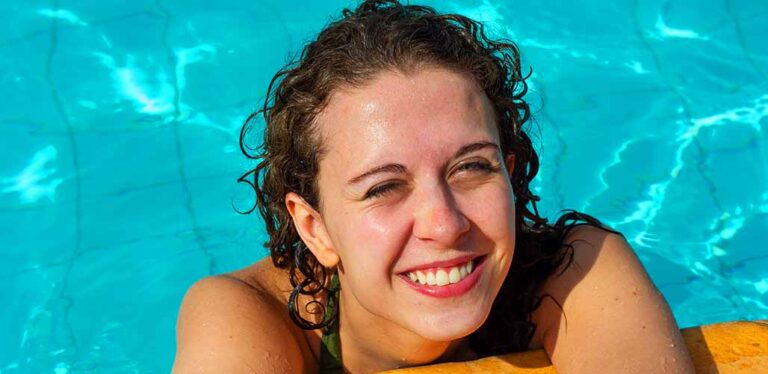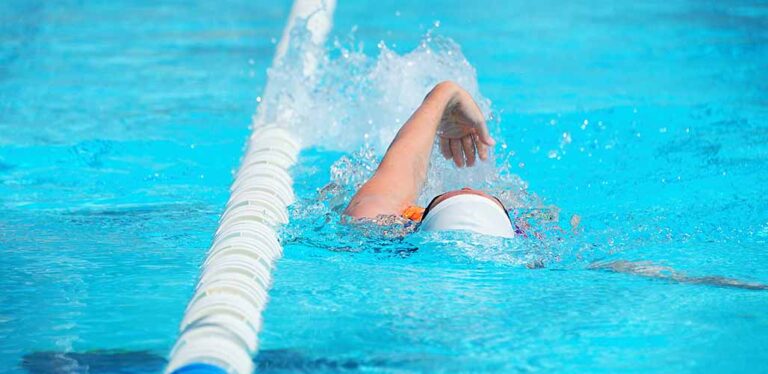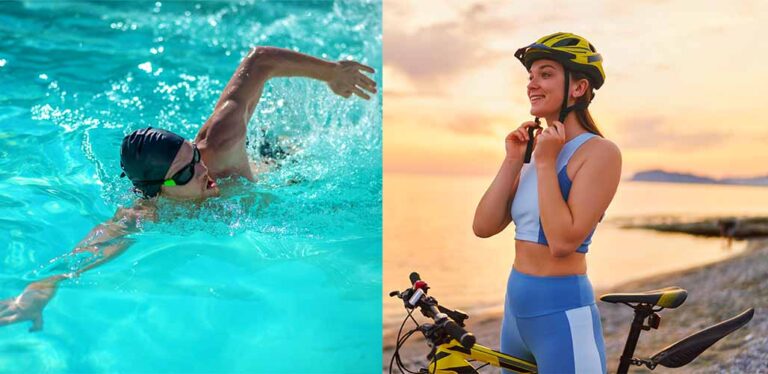What Is The Best Age To Start Competitive Swimming?
What is the best age to start competitive swimming? Michael Phelps started competing at seven years old, and Katie Ledecky started at six. Like these two greats, most world-class swimmers have begun competing by the time they are eight to twelve years of age.
Children as young as one year old can learn to swim. However, there is no specific sweet spot or optimum age for a child to start competitive swimming. Their ability, enthusiasm, and maturity level all play a part, and some kids are ready earlier than others. In the end, they could all end up competing at the same swim meets.
In this article, I’m going to share my experience of when kids are ready to try swimming competitively for the first time, and what to consider if your own child wants to give it a go.
Contents
What Age Does Competitive Swimming Start?
The youngest competitive category at swim meets run by USA Swimming – the national governing body for competitive swimming in America – is 8 to 10 years old. However, meets might include some developmental races for under 8 year olds too. These are fun opportunities for younger swimmers to find out what it’s like taking part in a swim meet, but without things like points or rankings (and with fewer officials too). For the most part, local swimming clubs such as YMCA swim leagues also adopt the same approach. But your son or daughter’s swim coach will be able to tell you about the specific rules for their club.
The minimum age for developmental races is at the organizer’s discretion, and the younger your child is, the more important it also is that their coach or instructor assesses their ability and agrees that they’re ready to try competing. Many local organizations will accept children into developmental races from around six years old, and this is a good way for them to try it out and get familiar with what happens at a swim meet, before they start competing officially at age 8.
Factors that Decide the Best Age to Start Competitive Swimming
Most successful competitive swimmers start competing as soon as they are eligible at age 8, and at least by the time they are 12. After that, they will struggle to catch up with the training advantage of swimmers who started sooner. But what factors influence when, within this window, to take the plunge? Here are the factors that can help you decide if your child is ready to gain the most from it.
- Swimming ability
- Passion for swimming
- Desire to compete
- Emotional maturity
- Avoiding burn out
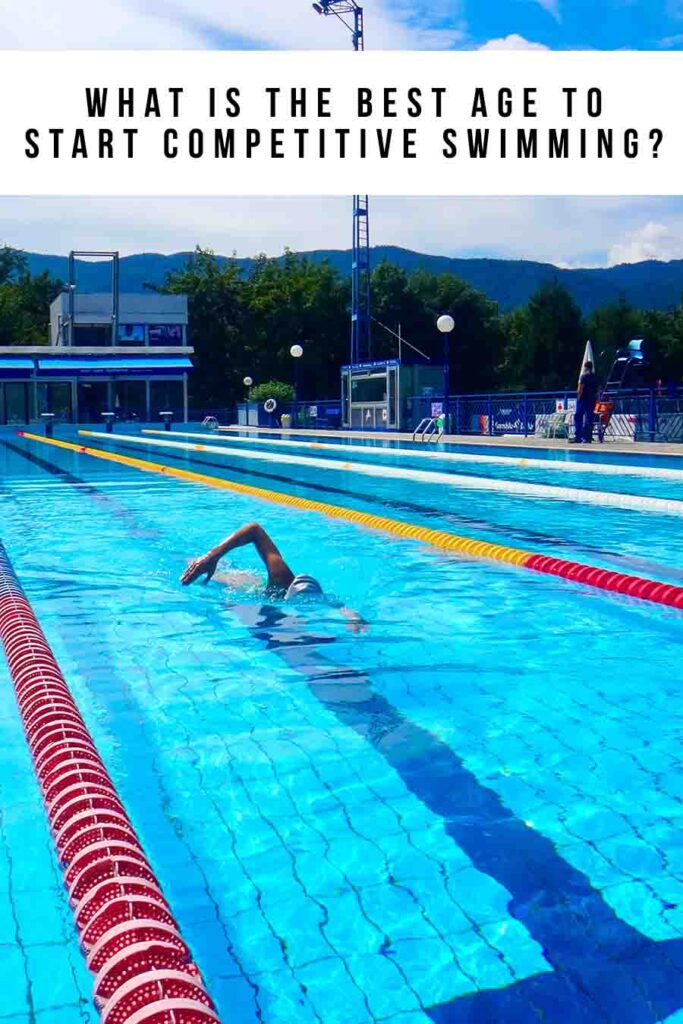
Swimming Ability
Part of competitive swimming is improving and refining your technique throughout your career, in order to gain seconds in the pool and achieve new personal bests. So children don’t have to be experts in order to start competing, but they should have reached a level of competency where they can
- Swim 100 meters continuously.
- Know all four common competitive strokes; front crawl, breaststroke, backstroke, and butterfly.
- Do a star float for 60 seconds or tread water for 30 seconds.
Knowing skills like a side stroke is also helpful. How soon your child will reach this threshold depends on when they start learning to swim, how much natural proficiency they have, and how much they practice.
Passion for Swimming
In my experience, this is the most critical factor in deciding what is the best age to start competitive swimming. The reason is that competitive swimming is not just about competing. Enjoying the process is more important than being first on the leader-board. Passion makes training for competitive swimming fun, rather than a chore. Nobody wins every race they take part in, or achieves a new personal best every time they enter the pool, but passion is what makes it fun and rewarding to be there anyway. It also helps to cultivate sportsmanship.
So an important part of deciding whether your child is ready for competitive swimming is whether they are enthusiastic enough to make the commitment to training. You’re the best judge of your kid’s passion and motivation for swimming. Do they love getting in the pool? Does their interest extend beyond their weekly lessons? Do they talk about swimming at home and love discovering new information about it? Are they excited by the idea of taking part in more swimming activities (and not just the idea of winning)?
Bear in mind that some kids will be capable enough to swim competitively, but just not interested. And some kids will be interested enough to take them so far, but reach a limit. Most competitive training programs allow kids to start intense training at around 12 years old. This is when they start training up to nine times per week, and it would be hard to cope with this level of commitment unless they are exceptionally passionate about swimming. And that’s ok – by definition, reaching the top of a competitive sport is not for everyone.
Desire to Compete
Many coaches also evaluate passion for competition as well as passion for swimming before they allow young people to start competitive swimming. This means things like:
- Making a minimum weekly commitment to training and honoring it
- Turning up on time, and prepared (with all their kit)
- Bringing the right attitude to training
- Supporting the rest of the team
- Participating in a specific number of meets
Inevitably, these commitments also mean sacrificing other things (like time spent hanging out with friends). They also require skills not specifically linked to swimming (like team building, and representing the ethos of their club). Some kids don’t have the discipline at age 8, so they might not be ready for competitive swimming until they are 12. This isn’t a failing on their part – all children develop along their own unique course, and kids who are late bloomers in this respect will often catch up in competition rankings if they have been passionate about swimming for fun in the meantime.
Emotional Maturity
Besides being enthusiastic and driven, children also need to be emotionally ready to start competitive swimming. This doesn’t happen at a fixed age, so there is no perfect age when they will be most prepared. You can estimate maturity or temperament level for competitive swimming by:
- Their ability to cope with the stress of competition. This is things like coping with long days, nerves, and either coming last in their race, or not matching their own usual performance. It’s normal to be tired, upset, frustrated, or angry by these things, and they need the resilience to understand and manage those feelings.
- Their mental discipline, not just for the hours of training, but for teamwork and doing their best for the team, and keeping on top of their other commitments (like school work).
Avoiding Burn Out
The average college division swimmer has already done 6-8 years of training. But starting as early as possible isn’t necessarily best – those who start swimming competitively at 6 or 7 may feel burnout from training for such a long time. So, it’s important to recognize that early starting doesn’t mean a guarantee to go into elite training. Transitioning from enthusiastic recreational swimming to competitive swimming between 8 and 10 years old still allows enough time to develop their ability, but gives children more opportunity to become ready for the mental demands of competitive swimming, and reduces the likelihood of burn out.
What Is The Best Age To Start Competitive Swimming – Summary
Although there is no exact ‘best age’ to start competitive swimming, various factors can help answer with respect to a specific individual. These include
- Their passion for going competitive
- Whether they have the mental maturity required for competition
- Considering burnout
It’s undeniable for the most successful elite swimmers, these things all fall into place early on in life – this is what makes them so remarkable! But children who aren’t ready at 8 will still have lots of opportunities to go competitive and do well, right up until they are about 12.
If you and your daughter or son are starting to talk about competitive swimming, let us know your thoughts on this article in the comments box down below!
